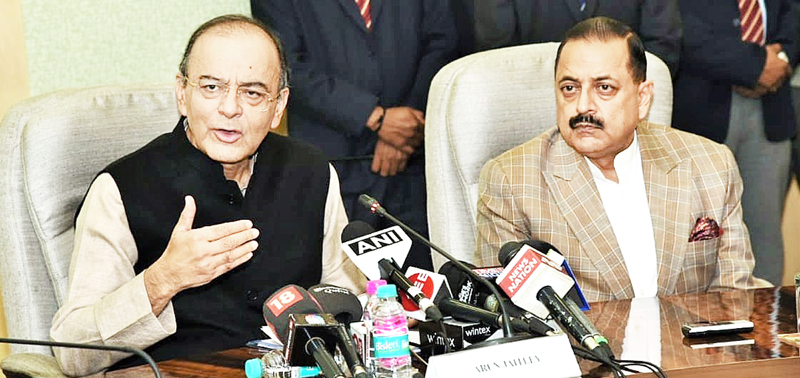
Excelsior Correspondent
NEW DELHI, Dec 10: Union Finance Minister Arun Jaitley, flanked by Minister In-Charge Department of Pensions Dr Jitendra Singh, today announced the Modi Govt’s major bonanza for pensioners.
Briefing the media about the Cabinet approval for a path-breaking proposal to streamline the National Pension System (NPS), Jaitley announced enhancement of the mandatory contribution by Central Government for its employees covered under NPS Tier-I from existing 10% to 14%. In other words, this means that while a Government employee was earlier contributing 10% from his salary as the corpus for pension and the government was also contributing 10%, now the Government’s share will increase to 14% which will directly add to the pension.
Another major decision by the Government, relates to tax exemption limit for lump-sum withdrawal on exit being enhanced to 60%. As a result, the entire withdrawal by the Pensioner will now be exempted from income tax, while earlier only 40% of the total accumulated corpus was exempted from tax.
The major impact of this streamlining of the National Pension Scheme (NPS) would be an increase in the eventual accumulated corpus of all the Central Government employees and greater pension payouts / pay packets after retirement without any additional burden. This decision of the government is also motivated by the intention to augment the need to old-age security in a time of rising life expectancy.
Pertinent to mention that the National Pension Scheme covers Central Government employees across the country. It is hoped that the respective State Governments will also adopt a similar pension policy for employees working under the State Government.

